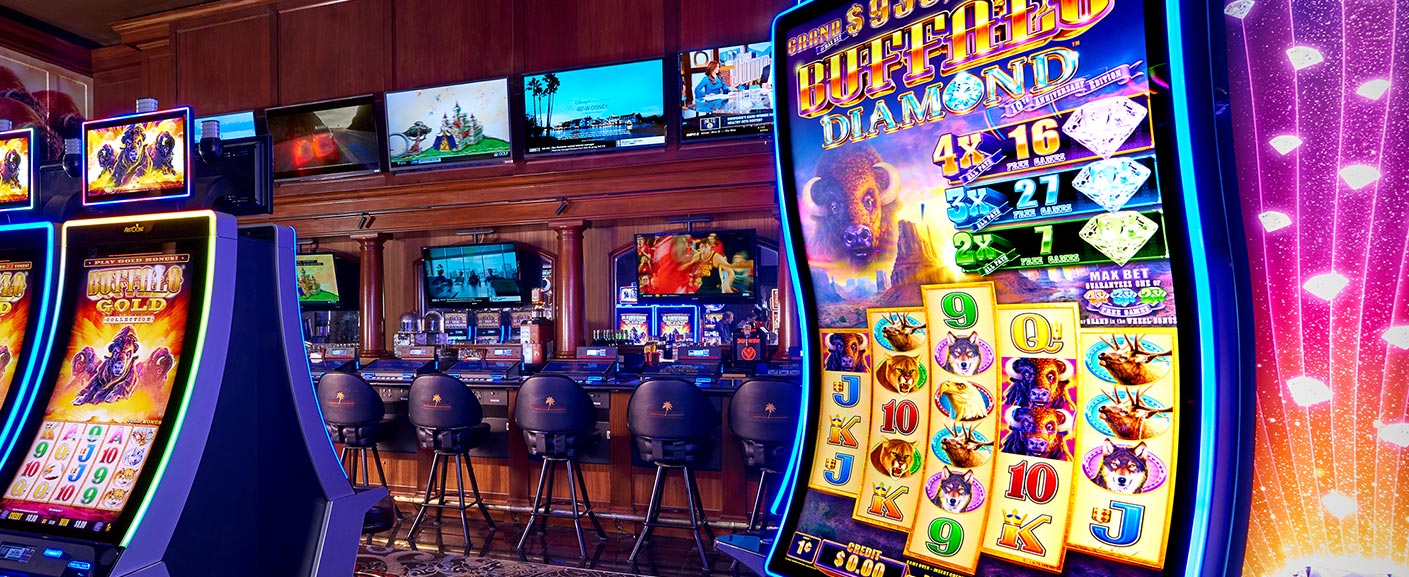Casino slots are one of the most popular forms of gambling worldwide. Their bright lights, engaging sounds, and the thrill of potential wins make them an enticing option for many. However, the effects of playing slots extend beyond mere entertainment. They can significantly influence a person’s mood, psychological state, and overall well-being, both positively and negatively.
The Positive Effects
- Entertainment and Excitement: Playing slots can be a fun and exciting activity. The anticipation of a big win and the enjoyment of the game itself can elevate a player’s mood. The random nature of the outcomes can provide a sense of thrill and adventure, which many find appealing.
- Stress Relief: For some, playing slots can serve as a form of escapism, offering a break from daily stressors. The immersive experience of the games can help distract players from their worries, providing a temporary respite from life’s pressures.
- Social Interaction: Online slots, in particular, can foster social interaction through chat features and multiplayer games. This social aspect can contribute to a sense of community and belonging, which can be beneficial for mental health.
The Negative Effects
- Addiction and Compulsive Gambling: One of the most significant risks associated with playing slots is the potential for addiction. The constant reinforcement and intermittent rewards can lead to compulsive gambling behaviors. This can result in significant financial problems, strained relationships, and severe emotional distress.
- Mood Swings and Emotional Rollercoasters: The nature of slots, with their highs and lows, can lead to mood swings. Winning can lead to temporary euphoria, while losing can result in disappointment and frustration. For some, these emotional ups and downs can become overwhelming and contribute to stress and anxiety.
- Isolation and Loneliness: While online slots can offer social interaction, they can also lead to isolation. Spending excessive time playing slots can take away from time spent with family and friends, leading to feelings of loneliness and disconnection.
Psychological Impact
- Impaired Judgment and Decision Making: The excitement and anticipation associated with slots can impair judgment. Players might chase losses, believing that a big win is just around the corner. This can lead to irrational decision-making and increased risk-taking.
- Depression and Anxiety: For those who become addicted to slots, the negative consequences can lead to depression and anxiety. Financial losses, guilt, and the breakdown of relationships can significantly impact mental health.
- Loss of Control: The feeling of being out of control is a common psychological effect among those who struggle with gambling. This can lead to a sense of helplessness and hopelessness, exacerbating mental health issues.
Balancing the Effects
- Setting Limits: One way to mitigate the negative effects of playing slots is by setting clear limits on time and money spent. This can help prevent the development of compulsive behaviors and ensure that gambling remains a form of entertainment rather than a source of stress.
- Seeking Support: For those struggling with the negative effects of playing slots, seeking support from friends, family, or professional counselors can be crucial. Support groups and helplines for gambling addiction can provide the necessary resources and guidance.
- Engaging in Other Activities: Diversifying leisure activities can help balance the effects of playing slots. Engaging in hobbies, physical exercise, and social activities can provide alternative sources of enjoyment and fulfillment.
Conclusion
While playing casino slots can offer entertainment and excitement, it’s essential to be aware of the potential impacts on mood, psychological state, and overall well-being. By setting limits, seeking support, and balancing activities, players can enjoy the positive aspects of slots while mitigating the risks. Recognizing the signs of problematic gambling behavior is crucial for maintaining mental health and well-being.

